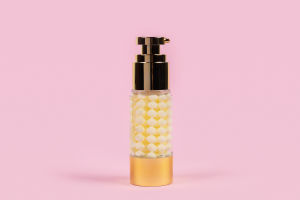
Essential oils are potent, natural extracts derived from plants, including their leaves, flowers, and stems.
These oils offer a range of therapeutic benefits—from promoting relaxation to alleviating skin issues—and can be used in various ways to enhance your well-being.
Whether you're using them for their soothing scents or their medicinal properties, essential oils can be a versatile addition to your self-care routine.
Ways to Use Essential Oils
1. Using Essential Oils with a Diffuser
One of the most popular ways to enjoy essential oils is through a diffuser. A diffuser disperses the oil into the air, filling the room with its aroma. There are different types of diffusers available, including ceramic, electric, candle, lamp rings, reed diffusers, and ultrasonic.
Each type has its own method of dispersing oils, but all are effective in filling your space with the therapeutic effects of essential oils.
2. Inhaling Essential Oils Directly
Inhaling essential oils is one of the easiest ways to experience their benefits. Here's how you can do it:
Direct Inhalation: Open a bottle of your favorite essential oil and inhale deeply. This method is simple but powerful. Avoid letting the undiluted oil touch your skin.
Steam Inhalation: For a more intense experience, add a few drops of essential oil to a bowl of hot water. Drape a towel over your head and the bowl, creating a tent to trap the steam. Close your eyes and inhale deeply for several minutes. Repeat as needed.
Note: Always be cautious when using essential oils around pregnant or breastfeeding women, children, or pets, as some oils can be harmful to them.
3. Dry Evaporation
This method requires just a cotton ball or piece of fabric. Add a few drops of essential oil to the material and either hold it to your nose or allow the scent to disperse naturally in your environment. You can also place the material in your car vents, or pillowcase for a long-lasting fragrance.
4. Applying Essential Oils to Your Skin
Essential oils can also be applied topically for their therapeutic effects. Here's how to do it safely:
Dilute with a Carrier Oil: Always mix essential oils with a carrier oil, like jojoba, coconut, or olive oil, to prevent skin irritation. A common dilution ratio is 3–5 drops of essential oil per tablespoon of carrier oil.
Massage: Apply the diluted oil to areas of muscular pain, tension, or stiffness. Common pressure points include the temples, wrists, and the area between the eyebrows (third eye). You can also massage the oils into your feet for a relaxing effect.
Incorporate Into Skincare: Add essential oils to your skincare routine by mixing them with your favorite creams, lotions, or serums. Just remember to dilute the oils properly.
How to Use Essential Oils - Understanding the Basics with Wellness Expert Jenn Pansa
Video by YouAligned
5. Using Essential Oils in the Bath or Shower
Essential oils can enhance your bath or shower experience. While it's best to store essential oils outside of the bathroom due to the humidity, they can still be used effectively here:
In the Shower: Add a few drops of essential oil to the shower walls or a warm washcloth. As you shower, breathe in the vapor for a refreshing experience.
In the Bath: Add a few drops of essential oil mixed with a carrier oil to your bathwater. You can also use bath products that already contain essential oils, like bath salts or bubble baths.
6. Using Essential Oils in a Humidifier
Many people use essential oils in humidifiers to improve air quality and create a pleasant atmosphere. However, some humidifier manufacturers recommend against using oils, so always check the manufacturer's instructions.
To use essential oils in your humidifier, add a few drops to the water tank. The oil will naturally disperse through the air, offering the benefits of aromatherapy. Be sure to clean your humidifier regularly to prevent oil buildup.
Safety Precautions for Using Essential Oils
Essential oils are potent, so it's important to use them with caution. Here are some safety tips:
Do Not Ingest: Essential oils should not be consumed internally unless under the supervision of a healthcare professional.
Consult a Doctor: If you are pregnant, breastfeeding, elderly, or have specific health concerns (e.g., high blood pressure, epilepsy), talk to your doctor before using essential oils. Children under 12 should also be monitored closely.
Consider Pets: Some essential oils can be harmful to pets, especially cats and dogs. Avoid using oils around pets or consult a veterinarian for guidance.
Always Dilute: Essential oils should be diluted with a carrier oil before applying to the skin to prevent irritation. For those with nut allergies, avoid oils derived from tree nuts.
Perform a Patch Test: Before applying a new oil or oil blend to your skin, perform a patch test. Apply a small amount of diluted oil to your inner wrist or behind your ear and wait 24 hours to check for any skin reactions.
Avoid Sun Exposure: Some citrus oils (like lemon and orange) can make your skin sensitive to sunlight. Avoid sun exposure for at least 12 hours after using these oils on your skin.
Essential oils offer a natural and versatile way to support your health and well-being. Whether you're using them to relieve stress, improve sleep, or enhance your skincare routine, there are many ways to incorporate these oils into your daily life. Always use them with caution, and make sure to dilute them properly to avoid skin irritation. With proper care and attention, essential oils can be a valuable addition to your wellness routine.


